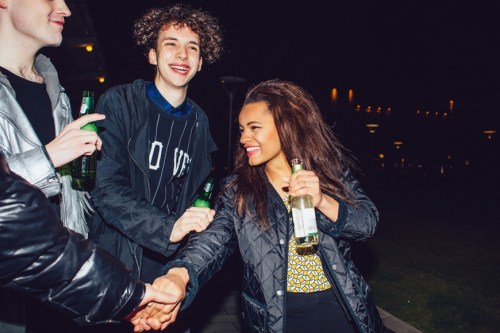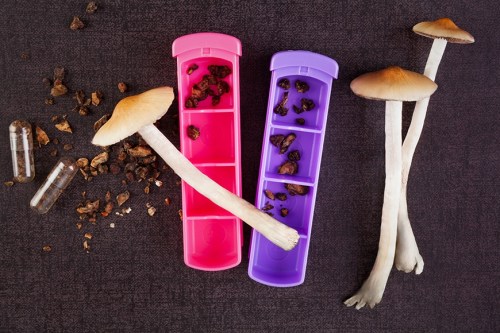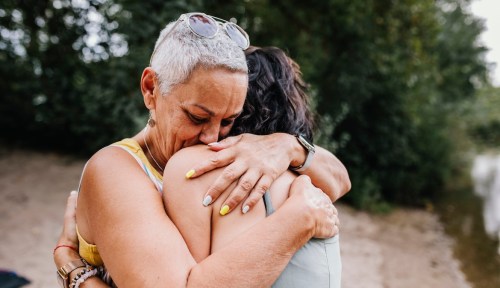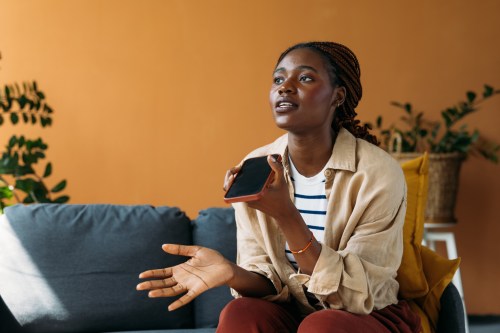When it comes to mushrooms, the wellness world is fully committed—at least to the stress-reducing, adaptogenic kind. But psychedelic mushrooms are a whole other matter. Fungi of the “magic” variety tend to conjure up images of free-spirited hippies tripping in the woods.
Scientific researchers, however, are increasingly looking past stereotypes and testing various psychedelic mushrooms to see if they’re effective in treating myriad mental health problems, including anxiety and depression. And in the past decade, they’ve seen promising results.
With cannabis gaining credibility, popularity, and legality as a treatment for conditions like chronic pain, epilepsy, and irritable bowel syndrome (to name a few), could magic mushrooms be hot on its heals?
Here, leading researchers reveal how psychedelic mushrooms are proving to be effective—and what doctors might be prescribing them for in the future.

Using mushrooms to treat mental health issues
Clinical psychologist Ros Watts, PhD, of Imperial College London is one of the leading researchers on using psilocybin—the naturally occurring compound that gives over 200 varieties of mushrooms their psychedelic kick—to treat depression and anxiety.
“The brain becomes more plastic,” she explains of what happens when someone takes psilocybin in a safe, controlled setting. “Different parts of the brain talk to each other more than usual. We think this is why many [study] participants are able to break out of rigid, restrictive patterns; after the session, they often describe being able to see, feel, and do things in a new way.” Dr. Watts explains that many of the participants describe this as a “reset” that leaves them feeling more balanced or restored.
“Different parts of the brain talk to each other more than usual. After the session, people often describe being able to see, feel, and do things in a new way.” — Ros Watts, PhD
“Somehow, the sessions seem to hone in on these problem areas [in someone’s life],” she says, referring to person-specific struggles such as grief, anxiety about the future, or having a general low mood. “It’s as if a highly skilled therapist had constructed an effective, intensive, bespoke workshop: a masterclass in how the participant can feel more connected to themselves and others, and heal specific psychological wounds. Yet it’s all coming from the participant themselves.” The effects last several months, too, though Dr. Watts notes they are only long-lasting if done in conjunction with follow-up therapeutic work.
Albert Garcia-Romeu, PhD, a research associate at Johns Hopkins University School of Medicine who specializes in psychedelics, altered states of consciousness, and meditation, compares the restorative effects of psilocybin to post-traumatic stress disorder. “People with PTSD have had one really bad experience that can affect them months or years after it happened. The experience people have with psilocybin is similar but in reverse,” he says. “They’ll have a very positive experience under the influence of psilocybin and that continues to have an ongoing benefit.”
Or, Dr. Garcia-Romeu puts it another way: “Have you ever had a mentor or person who influenced your career path? One might ask how that one experience impacted you long-term. It’s similar with psilocybin. People have these profound, long-lasting, meaningful [changes].”

How psilocybin can help you break bad habits
Dr. Garcia-Romeu has also seen psychedelic mushrooms work to break habits, like smoking. “We’re still trying to determine the nuts and bolts of it, but what people tell us is that it helps them to make changes in terms of understanding what’s really important to them, having insight into what’s healthy and unhealthy, and what they would rather be doing long-term,” he explains.
“There are medications that are out there on the market like Oxycontin, which easily people can overdose and die from. That’s not a risk from psilocybin or LSD.” — Albert Garcia-Romeu, PhD
While Dr. Garcia-Romeu advocates for more research into treating medical conditions with mushrooms, he emphasizes that using them in this way is very different from buying them from a friend or taking them at a party. “The participants have all been screened to be mentally and physically well, and the substance is administered in a controlled setting and proven to be clean,” he says. He explains that when you buy drugs illegally, you really have no idea what’s in them, and of course mixing them with alcohol or other drugs could lead to some pretty detrimental consequences.
But Dr. Garcia-Romeu maintains that when taken correctly, they can be beneficial—and far more safe than some of the alternatives. “There are medications that are on the market, like Oxycontin, that people can easily overdose and die from. That’s not a risk from psilocybin or LSD.” There are, however, psychological risks. Dr. Garcia-Romeu says 25 to 30 percent of the participants in his studies—quite a hefty slice—have experienced negative side-effects when taking the psychedelic; but ultimately, he says, they still took something positive away from the treatment.

The deal with microdosing
Both Dr. Garcia-Romeu and Dr. Watts have primarily studied moderate to high doses of psychedelic mushrooms, but there’s another way magic mushroom use is starting to trend: microdosing, or taking a very small bit regularly, over a long period of time. Both experts say this is one area of shrooming where more research needs to be done.
“People do report feeling less depressed or anxious with microdosing, but the evidence is all anecdotal, so it could be a placebo effect,” Dr. Garcia-Romeu says. “Until it’s studied rigorously with controlled doses and substances, we can’t say much about it.”
Still, he’s excited about the research being done on psychedelic mushrooms as a whole, thinking they will open the door to a range of treatments available to the masses. “Hopefully, as more findings come out, this will be something people can get access to medically,” he says. “There is a lot of sensationalism and cultural baggage around these substances, which really comes from their association to counterculturalism back in the ‘60s, but there’s a big difference between that and what medical researchers are doing now.”
If psychedelic drugs are too “out there” for you, there are other ways to help treat depression—including singing!
Sign Up for Our Daily Newsletter
Get all the latest in wellness, trends, food, fitness, beauty, and more delivered right to your inbox.
Got it, you've been added to our email list.











